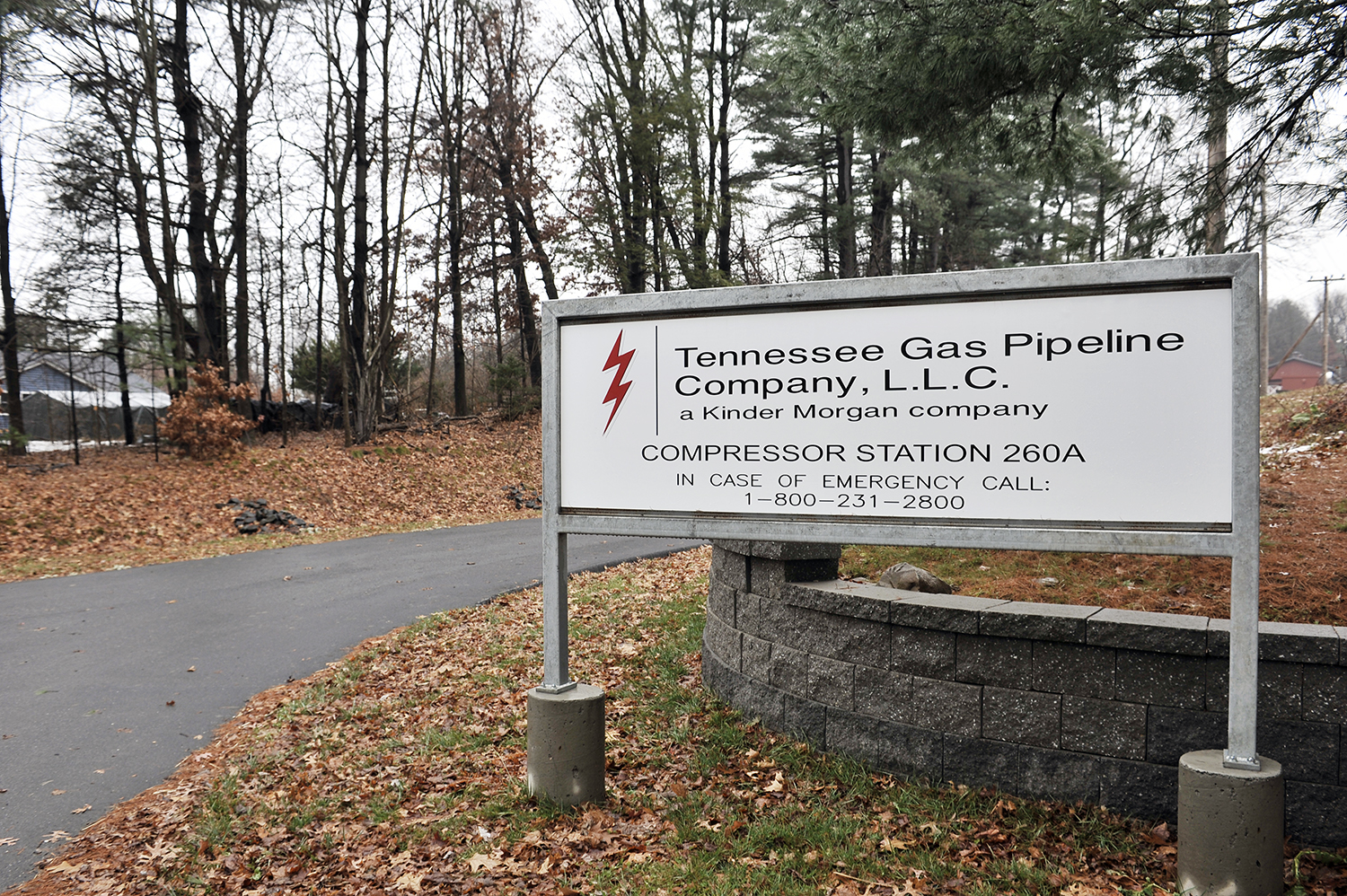By TOM RELIHAN
Recorder Staff
DEERFIELD — With many local residents, businesses and activist groups raising concerns about whether the natural gas that would travel along Tennessee Gas Pipeline Co.’s proposed pipeline would be destined for domestic consumption or export, Deerfield’s Board of Selectmen may attempt to ensure that people whose property the pipeline crosses are properly compensated.
At a meeting tonight, selectmen are expected to consider submitting a request to state Rep. Stephen Kulik, D-Worthington, to introduce legislation that would require companies that transport natural gas through Massachusetts to pay royalties to landowners whose property they acquired through eminent domain.
Natural gas certificates and hydropower licenses issued by the Federal Energy Regulatory Commission convey the power of eminent domain, which the agency’s website said can be used as a last resort if a landowner and the project developer can’t reach an agreement on compensation for use or purchase of property required for the project. Tennessee Gas Pipeline Co. is seeking such certification to construct the proposed pipeline.
The proposed legislation, drafted at the request of the selectmen by Cristobal Bonifaz, a lawyer from Conway who is working with the town on issues related to the pipeline, would require gas transporters operating in Massachusetts that take land through eminent domain to pay 12.5 percent of the wholesale price of any gas sold to foreign countries as royalties, which would then be divided up and paid out to the landowners based on the length of the pipeline crossing their property and the volume of gas it carries that is destined for sale overseas.
The royalties, the proposal reads, would be paid out in addition to any lump sum compensation that the company would be required to pay for taking the property.
It would not affect any gas consumed domestically.
Bonifaz said the legislation would not be retroactive, affecting only new pipeline takings since takings for other pipelines in the state have already occurred. It will also not apply to those who enter voluntary private contracts with the pipeline companies, he said.
Bonifaz said the legislation would not impose any sort of tax on exports, which he said are distinct from royalties.
“States cannot impose a tax on exported anything,” he said. “There is nothing, however, that prevents a state from setting royalties for land owners for gas extraction. This bill merely extends the state’s rights to transportation of gas designed for export since the export price for exported gas is what the market can bear.”
The legislation notes that the federal Natural Gas Act grants the Federal Energy Regulatory Commission the authority to regulate interstate wholesale prices of natural gas, and the act’s Hinshaw Amendment allows states to control intrastate retail prices for gas, but prices for gas that is exported don’t fall under the auspices of either the FERC or the state.
The Hinshaw Amendment, 15 U.S. Code 717(c), states that the provisions of the act do not apply to natural gas received by one person from another person within or at the boundary of a state as long as all that gas is ultimately consumed within the state and the rates and facilities that receive it are regulated by a state commission.
Because of that provision, Bonifaz said, a state decision to impose royalties could not be preempted by FERC.
The legislation claims that properties through which pipelines pass suffer great losses, but are not adequately compensated for eminent domain takings.
Carolyn Shores Ness, the board’s chairwoman, said the proposed legislation is based on similar policies commonly employed in Canada to provide landowners with royalties on gas volume.
“(Kinder Morgan) says this is for the public good in New England, but the size of the pipe says it’s going elsewhere. It’s going to carry more than double what all of New England uses,” Ness said. “The numbers don’t add up, and it’s disingenuous on the part of Kinder Morgan to say that.” Kinder Morgan is the parent company for Tennessee Gas Pipeline Co.
Ness said she hopes introducing the legislation will start a conversation about a fair payment system to protect landowners affected by the project.
In recent months, Deerfield’s Board of Health has also attempted to impose a ban on any activity related to the pipeline project from being conducted within its boundaries. That effort was also spearheaded by Bonifaz. With that policy in place, Ness said, the royalties legislation would not affect residents of Deerfield.
In November, LeClairRyan, the Boston-based law firm representing Tennessee Gas and Kinder Morgan submitted a letter to the town rejecting that ban.
The proposed project would extend through Franklin County on its way from Pennsylvania and Wright, N.Y., to Dracut, north of Lowell.
Local governments have no say over the envisioned 36-inch diameter, 300-mile, $3 billion to $4 billion pipeline, and while the state Legislature may have some say over its route, it is the Federal Energy Regulatory Commission that is the agency that licenses such interstate energy projects.
Recently, Kinder Morgan announced plans to change its preferred route that the pipeline would follow to Dracut. The new route would follow existing utility lines, entering Massachusetts in Hancock, then veering north into New Hampshire before re-entering the state near Dracut. It would skip over Orange and Warwick, but still pass through Deerfield and six other Franklin County towns.


